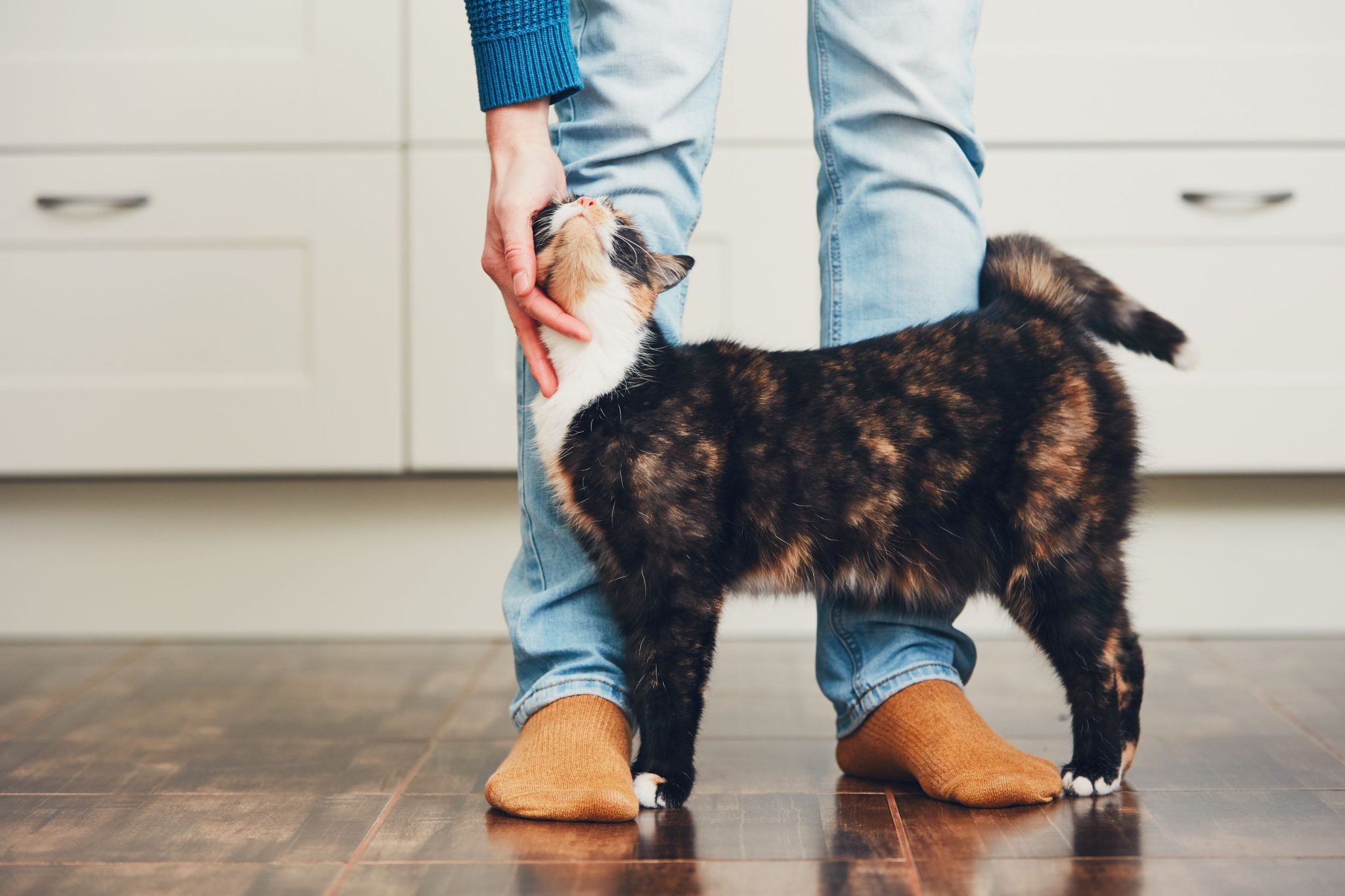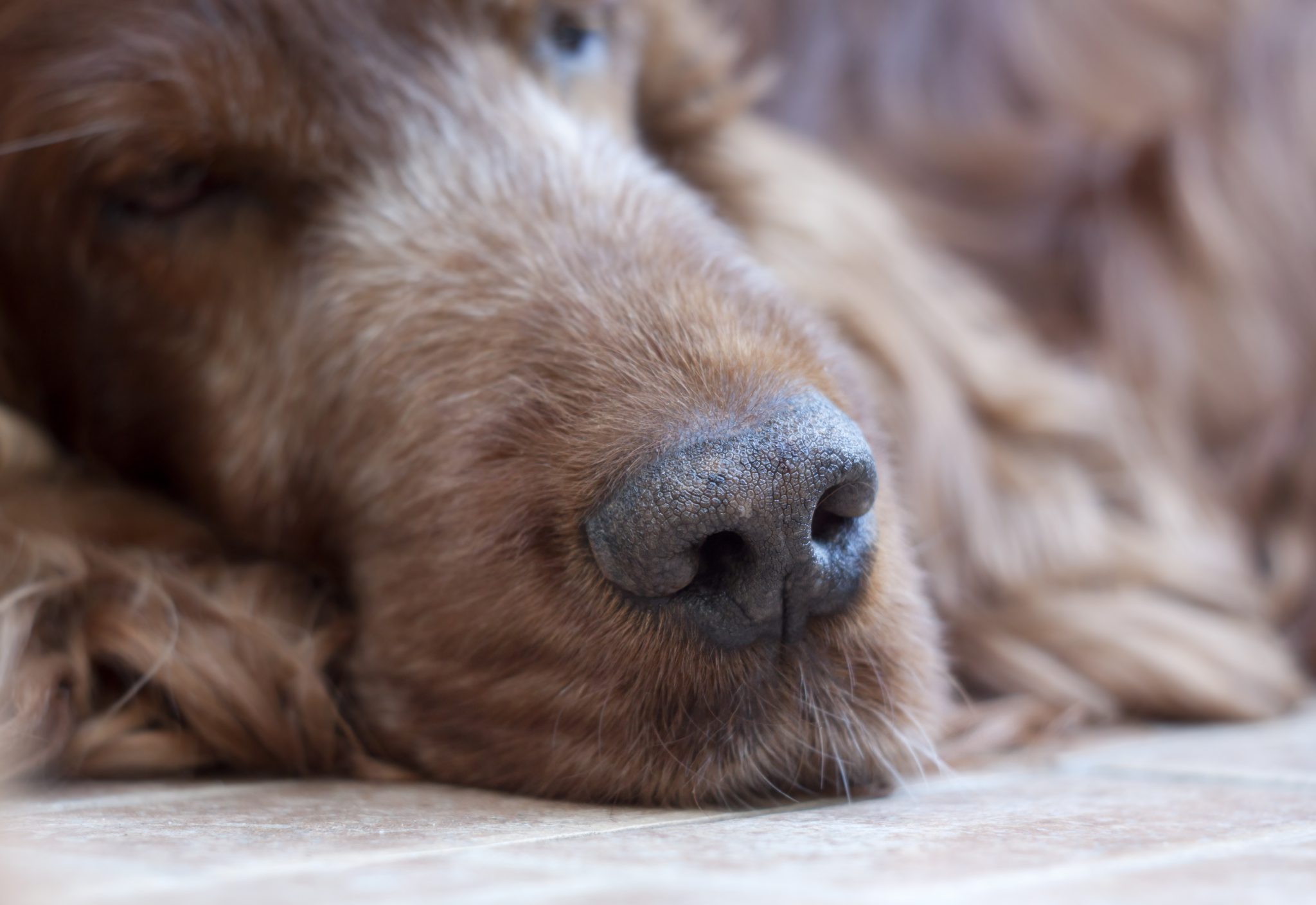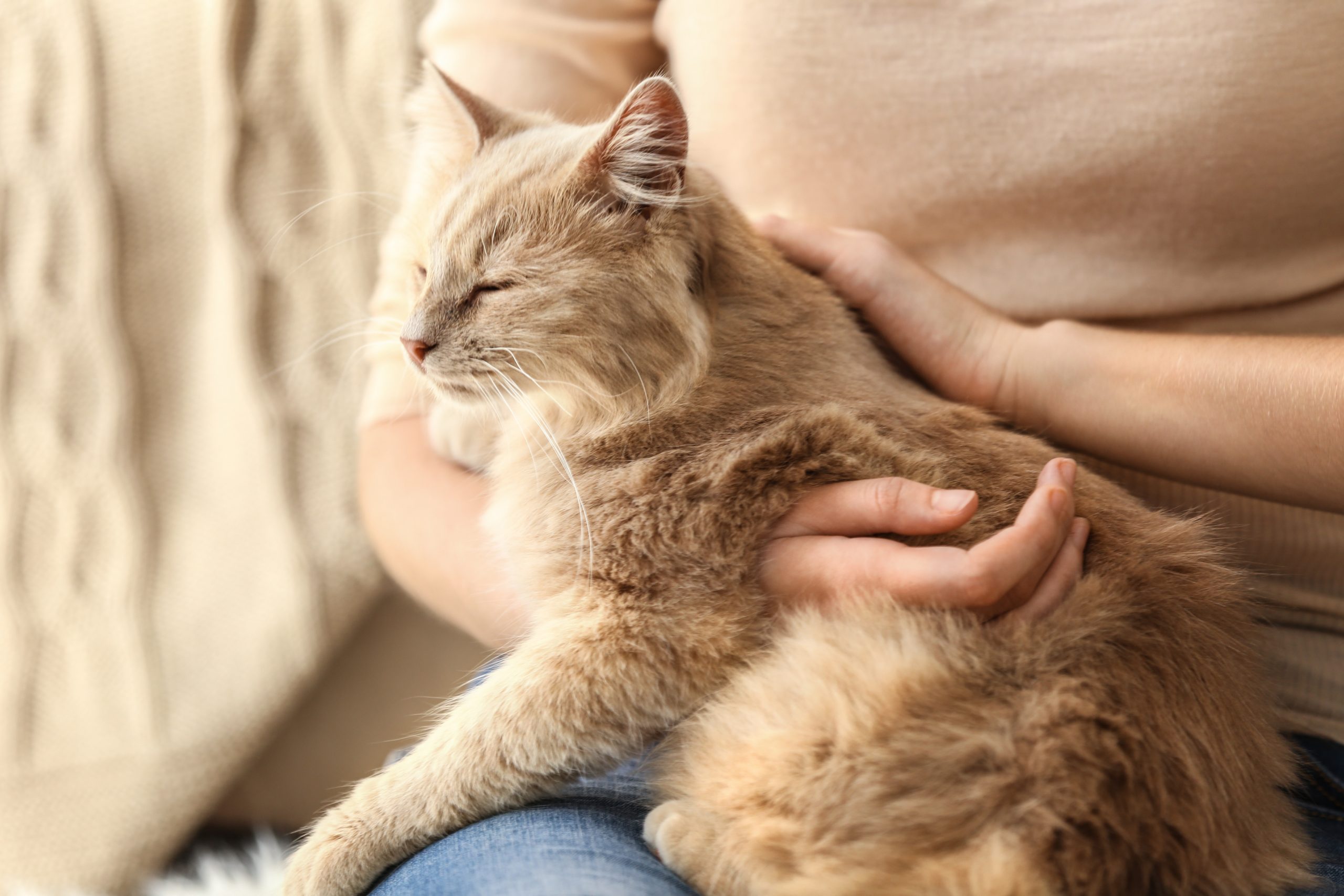Make Your Pet’s Senior Years Golden
Advances in veterinary medicine and an increasing awareness by pet owners about the importance of their pet’s health care are contributing to pets living longer lives. While having your pet around for longer is wonderful, these added years can present your pet with many challenges, such as hearing and vision loss, joint pain, cognitive dysfunction, and increased risk for several age-related diseases. As a caring and responsible pet owner, you want to ensure your ageing pet is as comfortable as possible when confronted by these issues. While you can’t prevent your pet from ageing, you can take steps to help them live their golden years comfortably.

..being overweight is the number one health issue for companion animals in New Zealand.
Keep your senior pet slim and trim
A recent study revealed that about 28 percent of dogs and 24 percent of cats in New Zealand are at an unhealthy weight, and being overweight is the number one health issue for companion animals in New Zealand.[1] The excess weight puts additional strain on joints, and the fat tissue produces inflammatory mediators that cause low grade inflammation throughout the body. Overweight pets are more predisposed to several serious conditions, including cancer, diabetes, urinary tract disorders, and arthritis. Steps you can take to keep your senior pet at an ideal, healthy weight include:
- Feeding an appropriate food — Senior pets need specific nutritional requirements, and once your pet reaches about 7 years of age, they should be fed a diet formulated specifically for senior pets. Large-breed dogs may need a senior diet at 5 to 6 years of age. In addition, dog and cat specific supplements can help your senior pet maintain optimal health and fight the signs of ageing.
- Controlling portion size — Determine what portion size your pet needs for each meal by consulting the food bag’s portion recommendation label and using calorie calculators, considering their age, weight, activity level, breed, and spay or neuter status. Then, ensure you feed them the correct amount by using measuring cups to portion out their meal.
- Monitoring their weight — Monitor your pet’s weight regularly by weighing them and assessing their body conditioning score (BCS), to ensure they are maintaining a healthy weight.
Get to know your senior pet’s veterinarian
Pain and illness are not always obvious in pets, because they instinctively hide their vulnerabilities. Senior pets should receive veterinary care, including a thorough wellness examination and possibly blood work, every six months. This will allow your veterinarian to catch conditions, such as cataracts, diabetes, kidney disease, and heart disease, in the early stages, when they can be better managed.
Your senior pet should also receive regular dental cleanings. Bacteria accumulate under the gumline, and these pathogens can cause your pet significant oral pain. In addition, small pets can fracture their jaw. The bacteria can also travel throughout your pet’s body, damaging multiple organs, including the heart, kidneys, and liver.
Pain and illness are not always obvious in pets, because they instinctively hide their vulnerabilities.
Ensure your senior pet’s joints are pain-free
Arthritis is a common condition affecting senior pets that can significantly limit their mobility and decrease their quality of life. You may think that your pet is slowing down because they are getting older, but arthritis may be the reason why they are reluctant to play. Signs include stiffness after resting, inability or reluctance to jump on or off furniture, difficulty navigating stairs, vocalizing when being handled or picked up, and disinterest in playing with you or other pets. If your pet is suffering from arthritis, steps you can take to help alleviate their pain include:
- Weight control — If your pet is overweight, losing the excess weight will reduce the strain on their overburdened joints.
- Exercise modification — Daily activity and rehabilitation exercises can help increase mobility and decrease pain.
- Joint supplements — Injectable and dietary supplements are available to help improve joint health.
- Pain relief — Nonsteroidal anti-inflammatories and products such as cannabidiol (CBD) can help alleviate joint pain.
- Surgery — Surgical procedures to remove damaged tissue, stabilize the joint, and replace the joint may be necessary in severe cases.
Keep your senior pet on their toes
Provide regular physical and mental exercise to keep your senior pet active and engaged, and to help prevent or slow the progression of cognitive dysfunction. This condition, similar to Alzheimer’s disease in humans, is underdiagnosed in pets because owners assume the behavior changes are normal ageing.[2] While this condition can’t be reversed, when caught in the early stages, management techniques can slow the progression. Signs include:
- Disorientation — Affected pets often appear lost in familiar environments, and may be unable to recognize familiar people or pets.
- Social interactions — Affected pets may exhibit decreased responsiveness or affection toward family members, and may be more irritable.
- Sleep cycles — Affected pets may sleep more during the day and less at night, and they may exhibit abnormal night-time behaviours, such as vocalizing, wandering, and restlessness.
- House soiling — Dogs may stop signalling they need to go outside and eliminate in random indoor locations, and cats may stop using their litter box.
- Activity — Affected pets may be less active, wander aimlessly, lose interest in food, and exhibit repetitive behaviours.
[Cognitive Dysfunction]… is underdiagnosed in pets because owners assume the behaviour changes are normal ageing.

Adjust your senior pet’s home environment
A few simple changes to your home can help keep your senior pet safe and comfortable. Changes that can help include:
- Installing ramps — Your senior pet may not be able to jump on and off furniture to get to their preferred resting spot. Installing ramps will ensure they don’t hurt themselves when seeking out their favourite spot.
- Providing comfortable bedding — If your senior pet has arthritis, they need a cushioned place to rest their achy joints. Providing beds in multiple rooms will ensure they don’t have to look far for a nice place to take a nap.
- Making necessities accessible — Your senior pet may have a hard time jumping on the counter to eat dinner, and bending their neck to reach their bowl. Ensure food and water bowls are easily accessible, and raise the bowls to allow your pet better access. Your senior cat may also need a litter box with lower sides that enables easier entry and exit.
- Blocking off stairs — If your pet is vision-impaired, block off their access to stairs, to ensure they don’t take a tumble.
- Don’t rearrange furniture — When pets are affected by vision loss or cognitive dysfunction, rearranging the furniture can cause extreme confusion and stress.
Your ageing pet deserves the best care possible, and you can ensure their golden years are safe and comfortable by taking these easy steps. Consult your veterinarian if your senior pet exhibits any behavioural changes, because the sooner age-related issues are caught, the better they can be managed.

